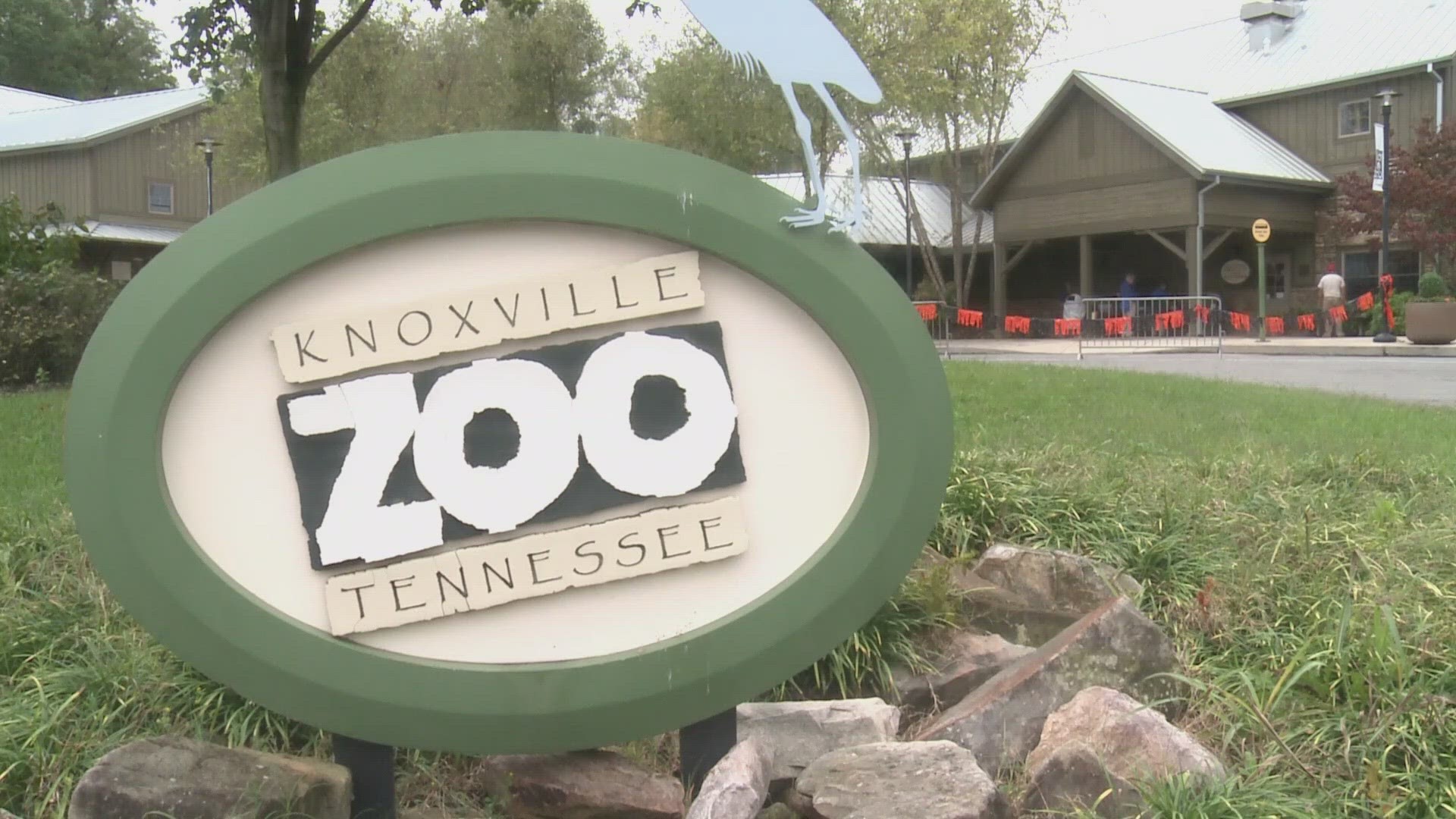KNOXVILLE, Tenn. — A viewer reached out to WBIR asking whether a rare parasite was found at Zoo Knoxville's splash pads recently.
Zoo Knoxville said it was notified on June 27 about a child who tested positive for cryptosporidium after they visited the zoo's play stream in the Kids Cove area — an area separate from the zoo's splash pads. After learning about the child testing positive, the zoo said they shut down the play area and began following treatment guidelines from the Centers for Disease Control and Prevention.
The child was diagnosed with the parasite days after visiting Zoo Knoxville’s Kid's Cove. The child’s mother, Jennifer Zielke, said her son tested positive for Cryptosporidium and C-Diff, a kind of bacteria that causes diarrhea. It is not clear where exactly the child contracted the parasite.
“I really didn’t want anyone else to go through what we had had to go through. It’s very traumatic and it’s scary,” Zielke said.
Zielke took her son to Zoo Knoxville on June 24. Two days later, she says he began showing symptoms.
“Initially, we just noticed that about every ten to 15 minutes he would cry. He is non-verbal so he has no way to communicate what is actually going on," she said. “I was changing him and I noticed there was a lot of blood and mucus in his stool. Immediately the first call was to the pediatrician’s office.”
He was diagnosed with the parasite, which is chlorine-resistant and mostly spreads through water. It can make swimmers sick for weeks, depending on their age and whether their immune systems are compromised. The most common symptom is watery diarrhea, according to the CDC.
They said symptoms can last for up to two weeks among people with healthy immune systems. Other symptoms include stomach cramps, dehydration, nausea, vomiting, fever and weight loss.
The day after Ziekle's son started showing symptoms, the Knox County Health Department began contact tracing.
“My son is special needs so we don’t really go many places. The only place we had gone in the month of June that had water involved was the zoo. The little lazy river area back by the beavers," Zielke said.
She said she immediately notified the zoo after the diagnosis.
“There was no blame being placed. I didn’t call saying he definitely got it from there. It was, I know that he was definitely in that water I didn’t want anyone else to go through what we had to go through," Zielke said. "We received notification from our health insurance that none of the testing was going to be covered, that it was not medically necessary and that we would be paying out of pocket for it."
Her son is recovering but she's now stuck with a $3,000 medical bill. That mom said she's going to go back to the insurance company to see if anything can be done to cover the cost.
"Just be aware that is a possibility, so if you go to a splash pad and your child gets sick, make sure to get them tested and during that testing period don't go anywhere else. Don't spread it," Zielke said. “I wanted the water shut off, cleaned and tested because I don't want anyone else to get it. I called back, I believe it was two days later to check, spoke with the rangers again and was told the water had indeed not been turned off and that it was operational."
Leaders at the zoo say the area was closed immediately after receiving the report on June 27 and Kids Cove would stay closed until the water test results come back. The Knox County Health Department told the zoo on July 19 the results came back negative for cryptosporidium.
They also said there is no outbreak or increase of cryptosporidium cases, and all testing the zoo performed has been negative for the parasite. They said it can be found in many other places people commonly go to, as well as from eating fruits and vegetables that aren't washed thoroughly.
Out of an abundance of caution after shutting down Kids Cove, the zoo simultaneously tested the goats and sheep in the area for cryptosporidium. Veterinarians and parasitologists at the University of Tennessee gave them a clean bill of health.
Zoo Knoxville also said they have their own, in-house water sanitation protocols. They said they follow guidelines from the Knox County Health Department for public pools and splash pads. They said KCHD also regularly tests the zoo's water.
The zoo had reached out to KCHD after learning about the child to tell them about the situation.

